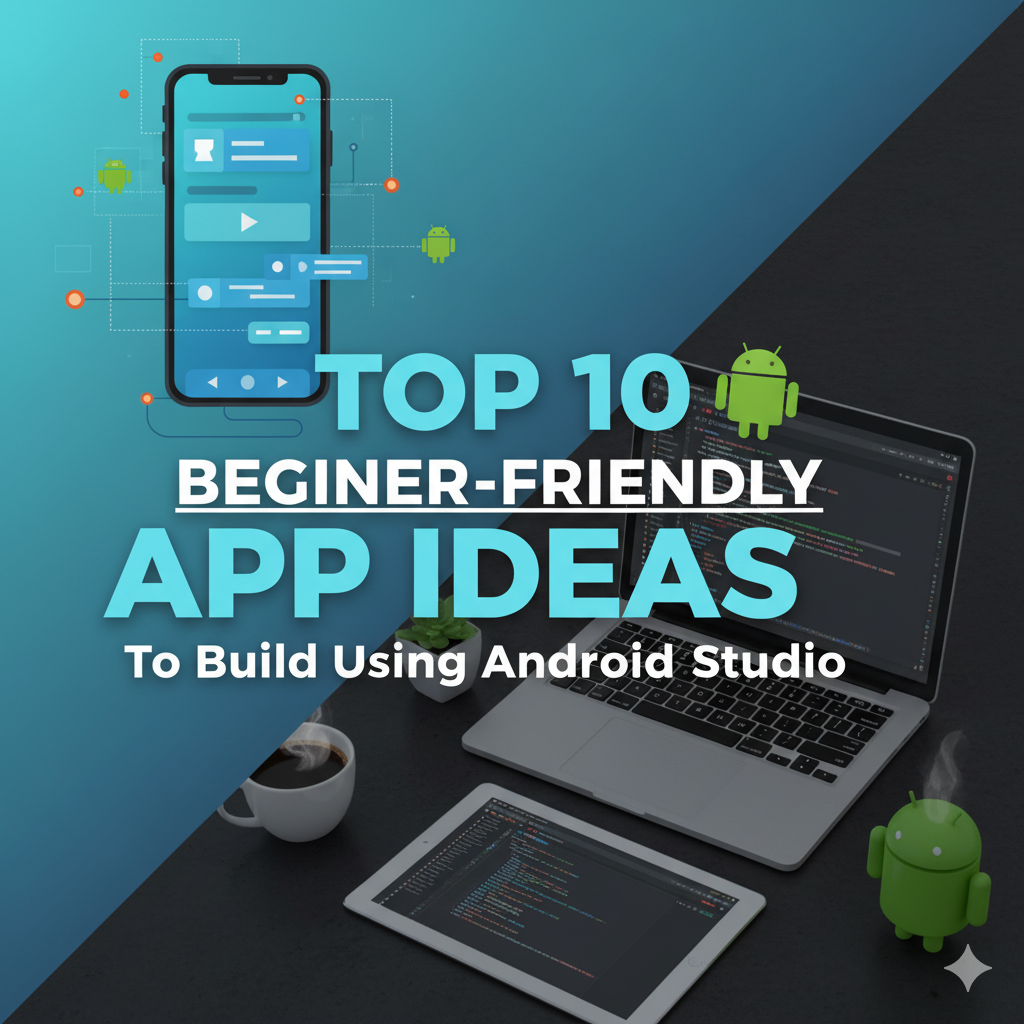If you are new to Android development, building small yet functional apps is one of the best ways to gain hands-on experience. Android Studio provides the perfect environment for beginners to experiment, design, and learn the basics of app creation. By starting with simple projects, you can gradually develop your understanding of layouts, user interfaces, logic, and APIs before moving to more complex applications.
Here are ten beginner-friendly app ideas that will help you strengthen your Android development skills.
1. Custom Calculator App
A calculator app is the perfect beginner project for anyone learning Android Studio. It helps you grasp the fundamentals of XML layouts, Java or Kotlin logic, and handling user input.
You can begin with basic arithmetic functions and later enhance your custom calculator app with features like scientific calculations, a history panel, or a dark mode toggle. This project gives you a solid understanding of core Android development principles.
2. To-Do List App
A to-do list app teaches you how to manage data locally, work with lists, and save user input. You can use SQLite or Room database to store tasks, mark them as completed, and delete or update entries.
It’s also a good opportunity to learn about RecyclerView and adapters, two essential components for displaying data dynamically in Android apps.
3. Weather App
A weather app introduces you to REST APIs and JSON parsing. You can connect your app to a free weather API, fetch data based on the user’s location, and display temperature, humidity, and forecasts.
This project helps you understand how to integrate APIs, manage permissions, and use Android’s location services effectively.
4. Notes App
A notes app helps you explore file storage, text input, and basic CRUD (Create, Read, Update, Delete) operations. You can save notes locally or extend functionality using cloud storage in Firebase.
This project is great for learning about user data management and gives a sense of how productivity apps handle input and persistence.
5. Quiz App
A quiz app helps you understand layouts, logic control, and user navigation between screens. You can create multiple-choice questions, score tracking, and even categories or levels.
This project is simple yet offers room for creativity, such as adding a timer or result summary after each quiz.
6. Expense Tracker App
Building an expense tracker app helps you learn data handling and visualization. You can store income and expense entries using SQLite and represent them through charts using open-source libraries.
As you gain more experience, you can extend it to sync with cloud-based databases, similar to SaaS application development projects that handle user data and analytics at scale.
7. Stopwatch or Timer App
A timer or stopwatch project is excellent for learning about threading and state management. It involves updating the UI dynamically based on user input, which teaches you how to use handlers or coroutines for real-time changes.
You can also add features like lap recording or sound notifications for better user experience.
8. Music Player App
A music player introduces you to working with media files and system permissions. You will learn how to play, pause, skip, and control volume for audio files stored locally on the device.
It’s a fun project that strengthens your understanding of Android’s MediaPlayer API and user interface components such as SeekBar and buttons.
9. Flashlight App
A flashlight app is one of the simplest yet most practical projects for absolute beginners. It uses the camera’s flashlight API and basic user interface controls.
You can also add extra functionality such as strobe mode or gesture controls to make it more interactive.
10. Recipe App
A recipe app helps you learn how to handle large datasets, search functionality, and custom layouts. You can add categories, favorites, and share options to make it more dynamic.
Integrating APIs to fetch online recipes or images will give you experience in working with data-driven applications and networking.
Going Beyond the Basics
Once you’ve built these beginner-friendly projects, the next step is to explore backend integration and cloud functionality. For example, you can read this guide to hire Golang developers to understand how businesses scale their backend systems using Go for performance and reliability.
If you’re curious about how professional teams bring large-scale projects to life, check out the top software development companies in Toronto that are driving innovation in mobile and web app development globally.
Conclusion
Starting with beginner projects is the best way to learn Android development efficiently. Each of these ideas will help you practice essential skills like UI design, database integration, API calls, and logic handling.
Once you are comfortable with the basics, you can advance toward complex projects such as multi-user systems, cloud-based storage, or full-scale Saas application development. The key is consistency, experimentation, and gradually challenging yourself with more advanced concepts.
